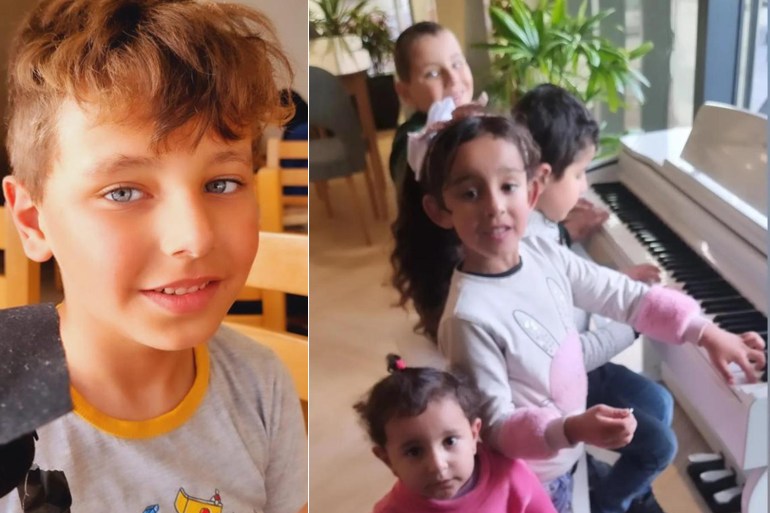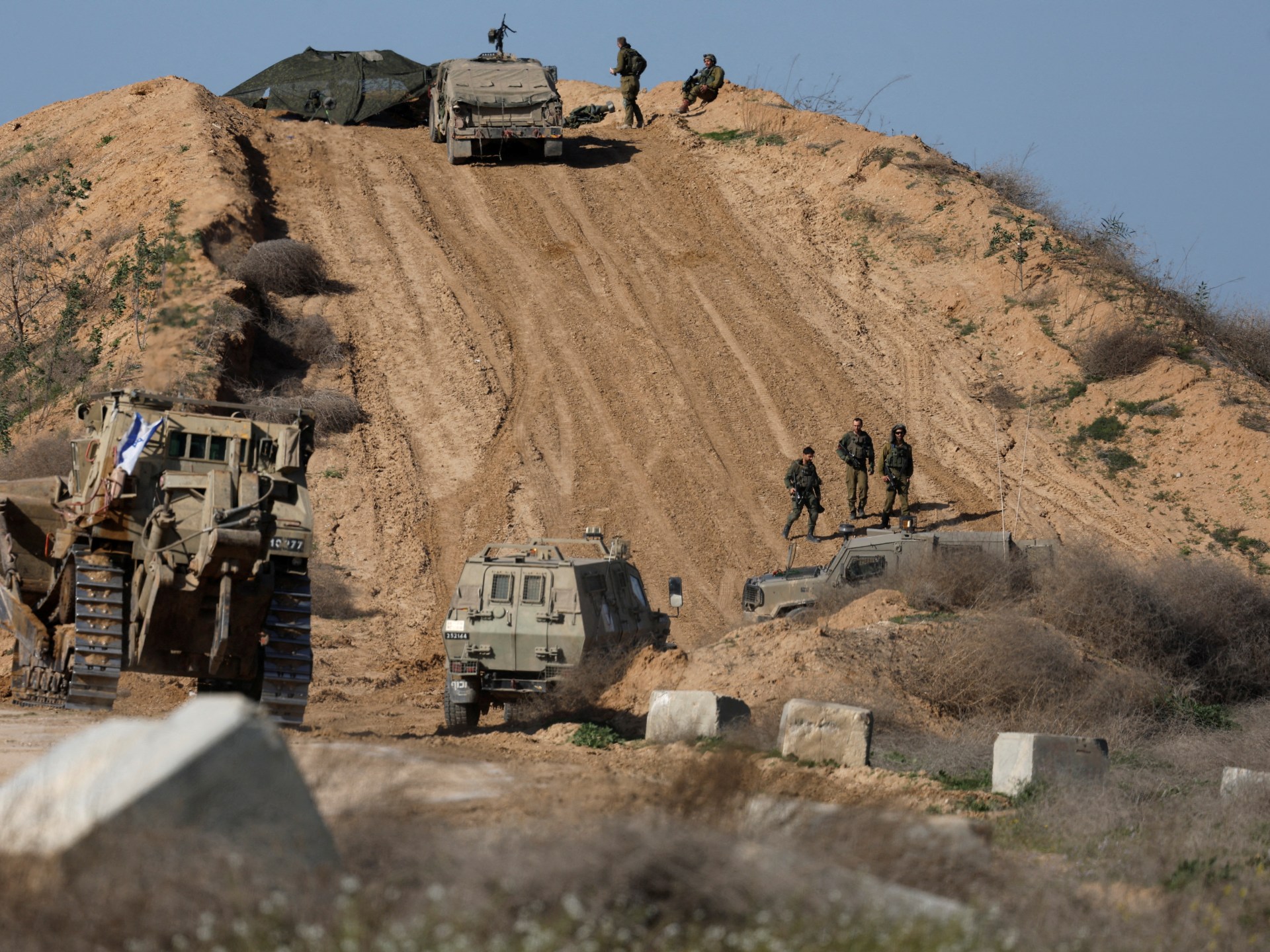
Rafah, Gaza – It is almost impossible to describe the feelings of a mother in Gaza on Mother’s Day.
A mother enduring the pain of being separated from her children cried at the sight of their malnutrition and stayed up all night to reassure them that they were “safe” as Israeli planes continued to drop bombs overhead.
Or a mother who lost her children in Israel’s war against Gaza.
“Mom, try to get us out.”
Alaa el-Qatrawi, 33, sits quietly, physically present, but it is obvious her mind is elsewhere. A few months ago, all four of her children were killed…
The Arabic studies graduate is separated from her husband of almost ten years, Musa Qandil, and was only able to see the children intermittently during the war.
She looks around with bloodshot eyes and recites the names of her children: “Yamen, eight years old. The twins Orchid and Kanan, six years old. And Carmel, three years old.”
In early December, when the children were with their father, who was taking them to Khan Younis for their safety, Alaa heard that Israeli tanks were approaching the house where they lived. One day, Israeli forces stormed the house and attacked her ex-husband and his brothers. They said the soldiers brutally beat them and stole money, cellphones and gold.
A university-aged cousin managed to hide her phone and on December 13, the children used it to contact Alaa, fearful of the fighting around them. “Mom, try to get us out of here,” she remembers them begging.
But Alaa says she was unable to receive help from two of the international humanitarian organizations in Gaza, and none of them reached the area where the house was located.
“I would imagine I could turn invisible and get them out. I did not know, what I should do. … They asked me for help, but I couldn’t do anything. When I remember their voices, I wish I could die or that this was a dream I could wake up from,” she cries.
She didn’t hear from them and didn’t learn what had happened until her brother-in-law was able to reach the house a month later, only to find it destroyed and the smell of rotting bodies emanating from it.
Yamen, Orchid, Canaan and Carmel
While Alaa speaks to Al Jazeera about Mother’s Day, she speaks about her children in the present tense.
“My oldest wrote me a beautiful letter in first grade that said, ‘My Beloved Mother.’ It is still with me and I will never forget it.
“Yamen just turned eight. He and I barely survived his birth. I was immediately rushed in for an emergency C-section and we later learned that the doctors expected only one of us would make it.
“Every year I write him a card on his birthday and tell him about the miracle of his birth. He is my miracle. He is so beautiful, blonde and with these big blue eyes he looks like my younger brother and is the nicest of his siblings,” she says and starts to smile.
“Kenan and Orchid had only been at school for a month, in first grade, when the war started. But they are so smart and funny. Kenan loves fruit and sometimes I put some next to him when he sleeps so he always has a snack on hand when he wakes up.
“They’re beautiful. Kenan is a little taller than Orchid, who has this golden skin and long black hair. I love how they compete with each other in everything.
“The year before, when they were in kindergarten, they brought me flowers for Mother’s Day and Orchid gave me chocolates. “Mom, I bought you chocolate because I know you like it with coffee,” she said. She had saved. I’m sure she would have been a doctor,” Alaa seemed to scare herself as she referred to her daughter in the past tense.
“Carmel, she comes from heaven and loves Masbahas [prayer beads] like me. “We were once out with a friend who had a masbaha that looked like mine, and Carmel took it and thought it was mine,” Alaa says, smiling wider as tears roll from the corners of her eyes.
“Everything that is Carmel is beautiful. But she’s tough too, you know. She can make her older siblings do whatever she wants.”
“What can a grieving mother say?”
Alaa, who is also a poet, is a teacher in Gaza and had been trying to devise a plan to get her children out of Gaza and bring them to Dubai for a better future.
“I had just been in the United Arab Emirates before the war and was working on the trial. I bought a princess dress for Orchid and toys for the other children. The toys are unused and the dress is practically unworn because it is more of a summer dress and now summer is coming and Orchid is not here to wear the dress.”
She stops crying.
“Orchid was so proud of me because I’m a poet. She always told me that she wanted to be a poet and appear on television.

She really was an orchid. I chose a poetic name for her and she grew into it.”
Although she has used words to express herself most of her life, Alaa finds it nearly impossible to talk about her children and their loss.
“What can a grieving mother say about her children?” she asks. “I used to put it out in writing… a poem or prose. I haven’t written since the beginning of this war. I am in shock and feel like we are alone in this war.
“During the 2014 war, I wrote a book called Letters Under War and Daily War Diaries, but not this time. I don’t think anyone cares.
“I don’t want to talk to people. I content myself with prayer and conversation with God to tell him what I need, for he is the all-knowing and all-seeing of what is hidden and the great catastrophe that has struck Gaza.
“Sometimes you wish the war would stop for a minute so you could be hugged by a child you love.”






Recent Comments